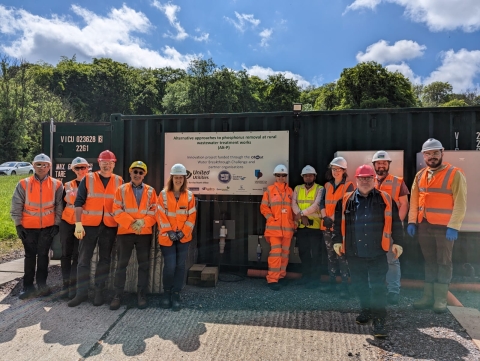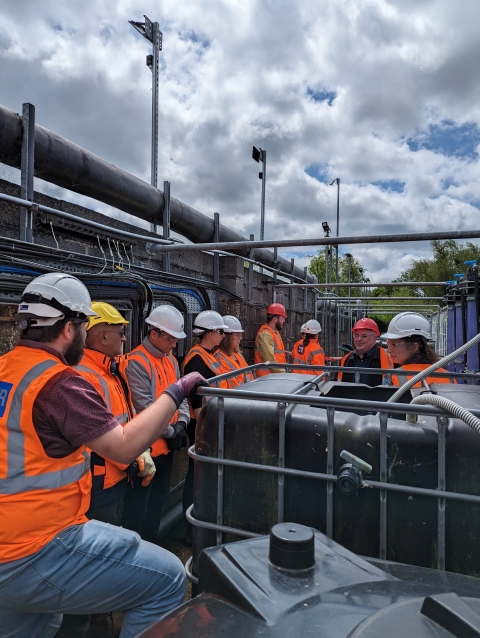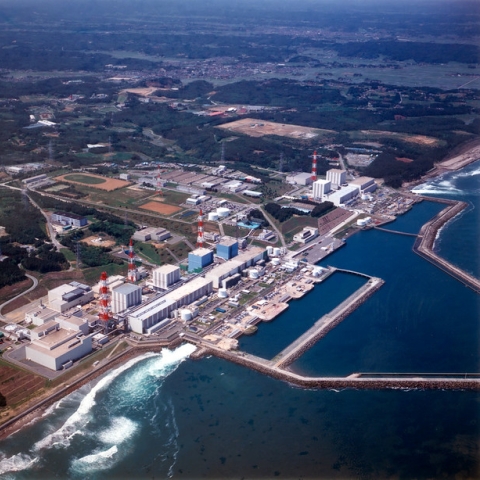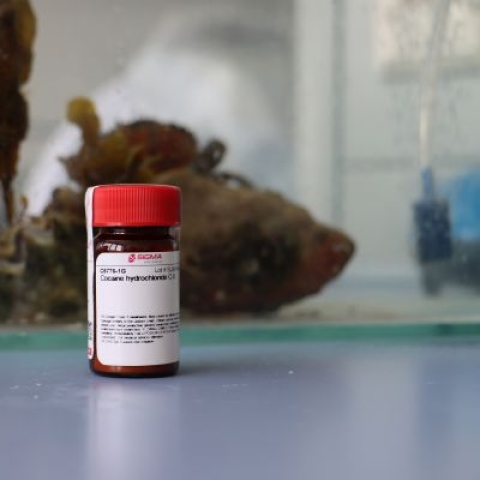

Environmental experts are working with water companies to develop alternative approaches to phosphorus removal on rural wastewater treatment works.
24 May 2024
9
Scientists from the University of Portsmouth have partnered with water companies and industry experts to tackle phosphorus pollution, which is a growing problem in UK waterways due to agricultural runoff and wastewater effluents.
The majority of rivers in England have high levels of phosphorus, which can be very damaging to water environments, promoting excessive algal growth and depriving fish and other aquatic animals of oxygen. There is also concern for the long term sustainability of phosphorus fertiliser supplies, the majority of which are mined and imported.
The water industry is heavily dependent on dosing metal based chemicals for the removal of phosphorus. These chemicals cause the mineral to come out of solution and then ‘clump’ the particles together allowing them to settle, but they come at a price with UK companies spending in the region of £39 million a year with rising demand increasing prices. This solution also does not scale down well to small rural sewage works which are becoming more regulated for their effluent phosphorus levels.
A new project, Alternative Approaches to Phosphorus Removal on Rural Wastewater Treatment Works (Alt-P), is exploring chemical free options for phosphorus removal, to reduce the carbon footprint of wastewater treatment, without negatively impacting water quality.
It is being led by United Utilities in collaboration with the University, Southern Water, Wessex Water, Power & Water, Evergreen, Hydro Industries, and Kolina.
Potential solutions range from electrocoagulation (using electrical reactions to clump together particles), to natural coagulants and reactive media, which is the University of Portsmouth and Southern Waters’s contribution.
“Reactive media” are a range of different materials which attract and bind phosphorus to their surface, enabling them to be placed in a simple filter bed or wetland. These technologies are being trialled at rural wastewater sites, which face unique challenges for chemical-free treatment.
It’s clear we need a more sustainable process to remove phosphorus if we want to maintain water quality and reduce the amount of carbon used in the manufacturing and delivery of coagulants.
Professor John Williams, Research lead for the School of Civil Engineering and Surveying
Professor John Williams, research lead for the School of Civil Engineering and Surveying, said: “It’s clear we need a more sustainable process to remove phosphorus if we want to maintain water quality and reduce the amount of carbon used in the manufacturing and delivery of coagulants.
“A secondary aim is to recover the phosphorus from the wastewater to close the loop and provide a long term circular economy for finite phosphorous resources. To enable this, we are looking at media that capture P made from waste materials such as sea shells and biochar that could be directly reused in agriculture.
“If these options work, they could be used at any wastewater treatment plant in the UK, or around the world.”
Yesterday (23 May), partners met at two locations on the south coast to get an update on the project’s progress. Firstly they visited the University’s Environmental Technology Field Station at Petersfield Wastewater Treatment works, which is hosting laboratory trials of different media, followed by Southern Water’s West Marden wastewater works where a mobile testing unit is currently situated.

“In order to monitor and test at different sites effectively across the UK, we’ve built a mobile test bed in a shipping container”, explained Dr Janine Robinson from the University who is a researcher on the project.
“The container is packed with test rigs containing different reactive media and online monitoring, which can move between sites with different water chemistry to determine the best solution for a particular site.”
Project lead, Dr Adela Martin from Southern Water, said: “The Ofwat fund encourages collaboration between water companies, suppliers, researchers, and local communities, to develop innovative solutions that enhance water efficiency, resilience, and sustainability. This collaborative approach is also intended to accelerate the adoption of cutting-edge technologies and practices, ultimately leading to better service delivery and environmental outcomes for consumers.
“Reactive media can effectively adsorb and retain phosphorus from wastewater, employing a straightforward and environmentally friendly process and therefore represents a promising solution to mitigate eutrophication in local water bodies. Implementing reactive media at rural treatment sites, not only improves water quality but also provides a cost-effective and efficient alternative to conventional chemical treatments, which can be both expensive and logistically challenging for small-scale operations.”
The project is being funded by Ofwat, as part of its first Innovation in Water Challenge. In 2021, the Water Services Regulation Authority for England and Wales selected nine winners to share in £36 million to tackle some of the biggest challenges facing the water sector in England and Wales.
Lisa Mansell – United Utilities, Chief Engineer Innovation, said: “Securing funding for this project was a great achievement. It will significantly advance the adoption of alternative options for phosphorus removal from wastewaters. These options aim to reduce the cost of delivering environmental improvements (savings that could drive down customer bills), but could also significantly reduce our carbon footprint.”
More like this...
Scientific Evidence Supports Safe Discharge of Fukushima Wastewater into the Pacific Ocean
6 October 2023
8

More than 50 chemicals discovered in water off Hampshire and West Sussex coasts
9 June 2023
8

Scientists farm seaweed in the Solent to test water quality and commercial benefits
15 June 2023
5

